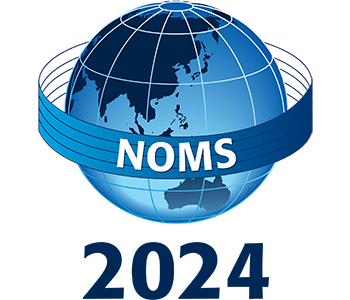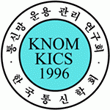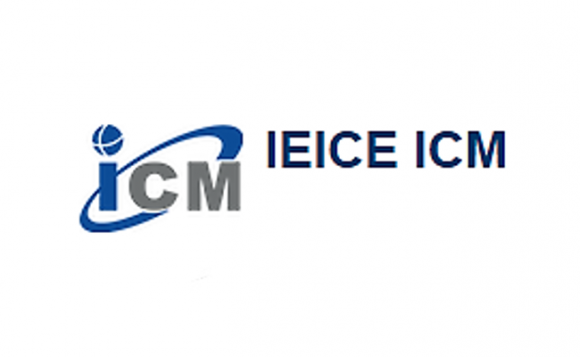Workshop on Game Theory for Network Security
Call for Papers
The security of information systems, communication networks, cyber-physical systems (CPS), Internet of Things (IoT), and software-driven critical infrastructure has become of primordial importance due to the constantly emerging and evolving cyber threats. Indeed, security threats in networks are becoming increasingly intelligent, automated, and sophisticated, requiring the adoption of advanced tools for modeling adversarial behavior, and designing strategic cyber defense mechanisms. Game theory, with its extensive set of models and frameworks, continues to prove effective in delivering solid multi-agent decision-making in the face of security vulnerabilities as well as highly tailored security risk management in interconnected systems. Game-theoretic models and algorithms have been widely used to analyze network security risks under incomplete information about potential security vulnerabilities and threats and to study the complex interactions between resourceful attackers and network defenders. The security applications of game theory include security resource management, cooperative and secure communications, design of anti-jamming strategies, and deployment of intrusion prevention systems, all while dealing with the challenges of network decentralization and distributed systems. This workshop aims to emphasize the importance of leveraging game theory to address security problems in heterogenous, dynamic, and large-scale computer networks.
The workshop will focus on recent advances in the area of game theory for network security and provide the audience with a platform to discuss new and emerging research directions that leverage game theory for addressing secure control, adversarial reasoning, risk assessment, anomaly detection, attack mitigation, and trust issues in large-scale and dynamic networked systems including CPS, IoT, and connected vehicles. We seek submissions at the intersection of network security and game theory from experts in academia, industry, and government labs presenting novel research results and describing practical and theoretical solutions for network security enabled by game theory.
The workshop seeks original and unpublished work not currently under review by any other journal or conference. Topics of interest include, but are not limited to:
-
Game theory for network-layer threat and vulnerability analysis
-
Game theory for dynamic risk management
-
Game theory for secure and resilient 6G communication networks
-
Game theory for intrusion detection, prevention, and response
-
Game theory for the management of security resources
-
Game theory for cooperative network defense
-
Game theory for security in distributed and decentralized systems
-
Game theory for efficient security allocation in low-power networks
-
Game theory and reinforcement learning for self-adaptive network defense
-
Autonomous cyber defense based on game theory
-
Learning-enabled game-theoretic security in networks
-
Game theory for cyber deception and deterrence strategies
-
Game-theoretic approaches for Moving Target Defense
-
Zero-trust security and resilience based on game theory
-
Game theory for CPS and IoT security and resilience
-
Game theory for security in networked embedded devices
-
Game theory for security in vehicular networks
-
Game theory for security in industrial control and smart grid networks
-
Game theory for critical infrastructure security and resilience
-
Trust management in large-scale networks based on game theory
-
Economics of network security based on game theory
-
Game theory for security in blockchain networks and systems
Important Dates
-
Submission deadline: Feb. 2nd, 2024 (Extended)
-
Notification to authors: March 1st, 2024
-
Camera-ready deadline: March 15th, 2024
-
Workshop: May 6th - 10th, 2024
All times in Anywhere on Earth (AoE) timezone.
Author Information
Paper submissions must present original, unpublished research or experiences. Only original papers that have not been published or submitted for publication elsewhere can be submitted. Each submission must be written in English, accompanied by a 75 to 200 words abstract that clearly outlines the scope and contributions of the paper.
Maximum paper lengths, including title, abstract, all figures, tables, and references, are:
-
6 pages for regular papers,
-
4 pages for short papers describing work in progress.
Submissions must be in IEEE 2-column style and follow the style guide. Self-plagiarized papers will be rejected without further review - see IEEE’s policies regarding plagiarism and self-plagiarism are available here.
Authors should submit their papers via JEMS: submission link
Extended versions of the best paper(s) may be considered for fast-tracking to the Journal of Network and Systems Management IF: 2.026 (to be confirmed)
Organizers
-
Talal Halabi, Laval University, Canada
-
Charles Kamhoua, US Army Research Laboratory, USA
-
Hichem Sedjelmaci, Ericsson R&D, France
Program Committee
-
Ahmed H. Anwar, US Army Research Laboratory, USA
-
Anubhab Banerjee, Nokia, Germany
-
Ahmed Saleh Bataineh, Queen’s University, Canada
-
Jie Fu, University of Florida, USA
-
Yezekael Hayel, Université d'Avignon, France
-
Abdollah Jabbari, Concordia University, Canada
-
Serge Olivier Tsemogne Kamguia, IMT Atlantique, France
-
Hadis Karimipour, University of Calgary, Canada
-
Alptekin Küpçü, Koç University, Turkey
-
Brent Lagesse, University of Washington, USA
-
Pirathayini Srikantha, York University, Canada
-
Deepak K. Tosh, The University of Texas at El Paso, USA
-
Zhiyu Wan, Vanderbilt University, USA














